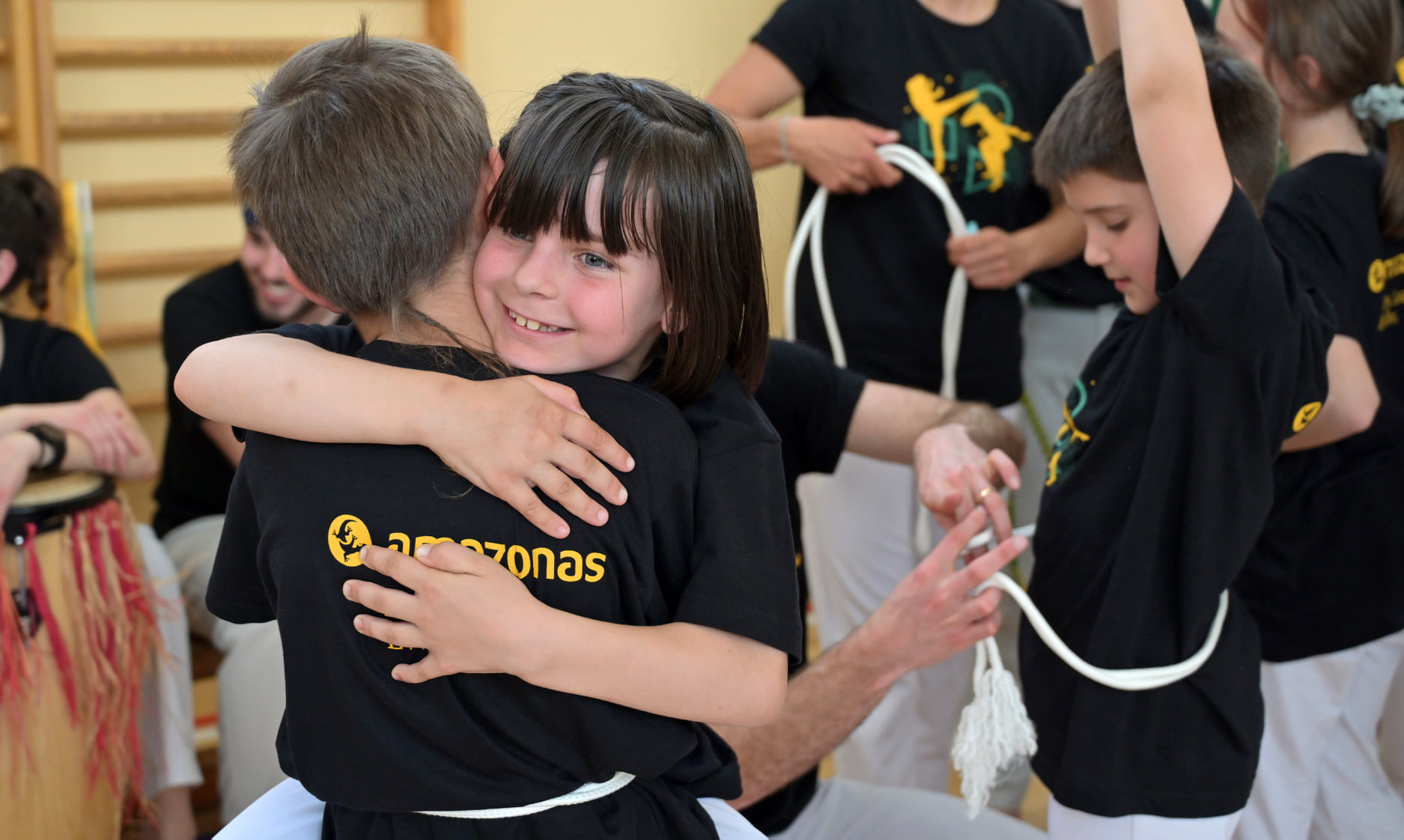The impossibility of one person completely capturing capoeira, yet its potential to be touched by anyone are part of the balance of power and beauty of this magical art.
Mestre Accordion
Capoeira is an Afro-Brazilian art form that incorporates live music, sport, dance, play, culture, and history.
Short capoeira history
Capoeira developed in Brazil, derived from traditions brought across the Atlantic Ocean by enslaved Africans. It fuelled by the burning desire for freedom. It soon became widely practiced on the plantations as a means of breaking the bonds of slavery, both physically and mentally.
What does capoeira make you learn and feel?
Capoeira first educates you on the history, traditions, and philosophy of Capoeira.
You learn about the Afro-Brazilian culture.
Second, while playing you express yourself through your body and you face your fears and weaknesses and overcome them.
You conduct yourself well in the roda and in the world also.
You are constantly learning, growing, and training hard to push yourself beyond perceived limits.
There is no arrogance, envy, and rage. Capoeira consists of music and playfulness.
Capoeira as psychological tool for children
Capoeira involves strenuous physical and acrobatic training that builds physical capacities and self-esteem.
Develops self-control and discipline, but by incorporating dance, it also allows for space, creativity, and self-expression.
Capoeira’s playfulness implies self-expression and the opportunity to enjoy their childhood while practicing. It might result in feelings of happiness, joy, and psychological freedom.
Children can find an outlet for their frustrations and an inner calm through capoeira play. It helps them cope with the various stresses of life more productively.
Furthermore, unlike other sports, there are no winners or losers. This avoids the feeling of comparison with others and feelings of disappointment.
Capoeira requires significant confidence, by learning new ways to move their body, use their voices and express themselves. They experiment with all of these in front of a group of peers.
Two people must play together within the circle, maintaining eye- contact, responding to their partner’s moves, and in rhythm to the music produced by the group.
Developing the courage to try, to make mistakes, and eventually to succeed in front of peers is an empowering process, which can lead to improved self-esteem.
My capoeira experience in Amazonas
With my volunteer work here, I have opportunity to train Capoeira and learn a lot about it from people who have been training for a longer time and now are part of the Capoeira Amazonas team.
Capoeira gave me so many new perspectives and helped me see things more deeply.
I see capoeira as a living art; all the movements that two capoeiristas make are truly works of art that people can witness.
Being part of the training and projects, in which Amazonas is helping children in their development, is an experience that allowed me to help them in their growth as capoeiristas and as a person.
To be present and part of this experience is really a very beautiful and inspiring feeling.
I hope the children are aware of how much they are growing as individuals who will be proud of all their efforts one day. I’m grateful for the time I’m spending with them and the chance to play capoeira with each of them.
Marija



